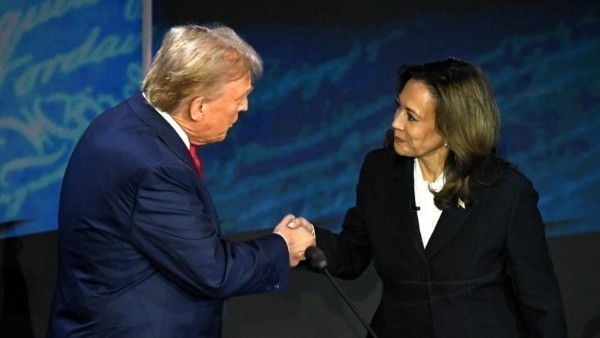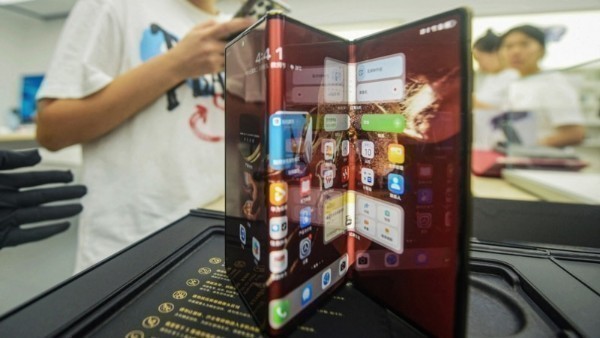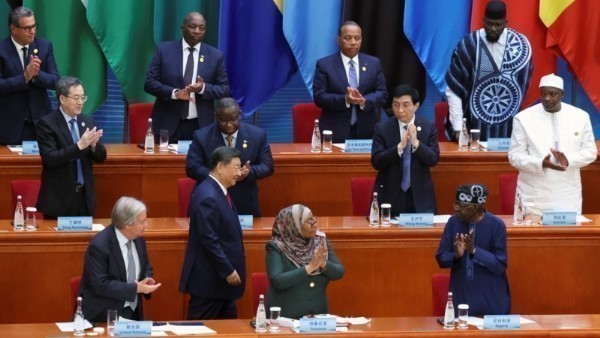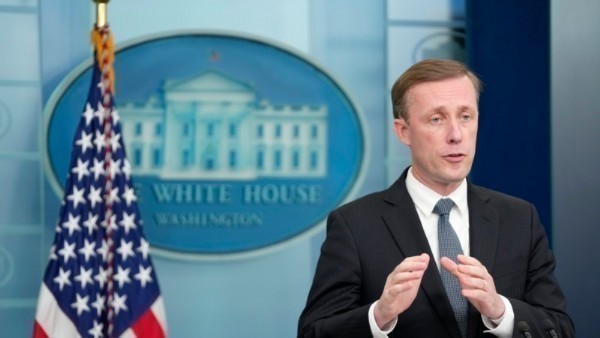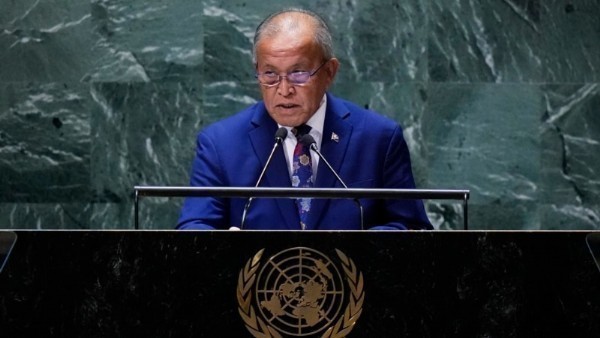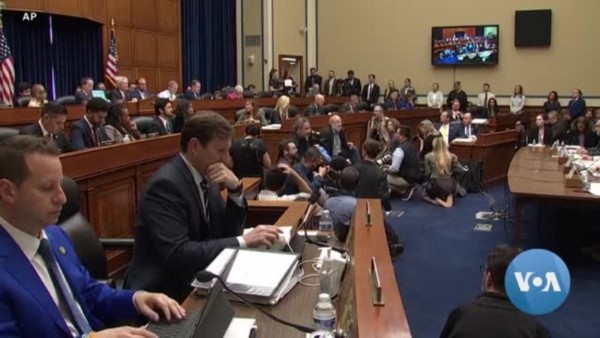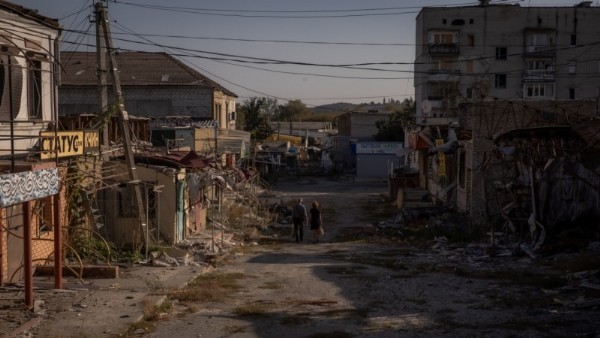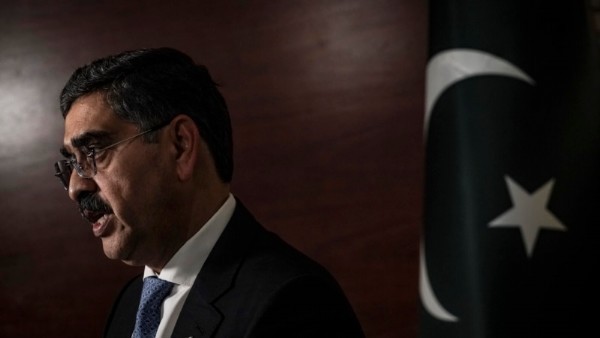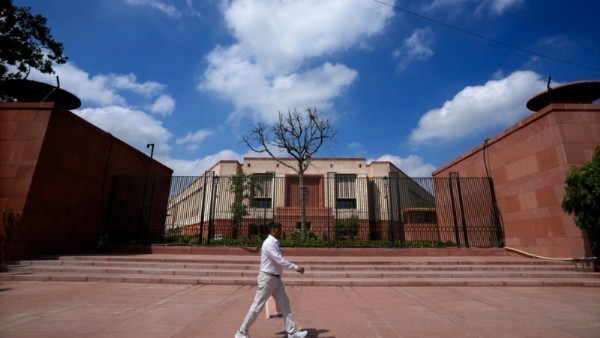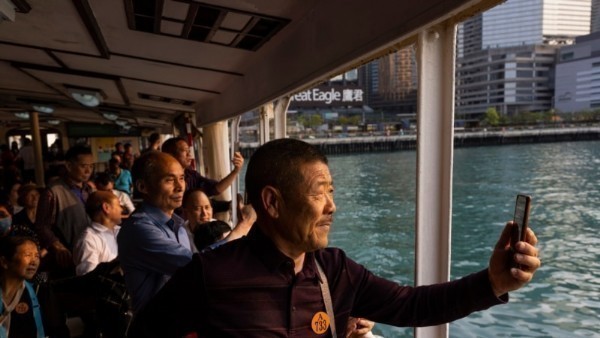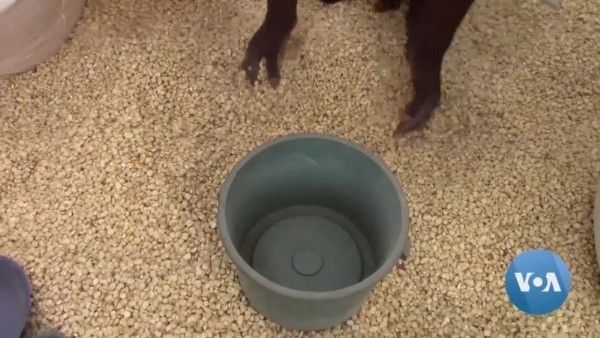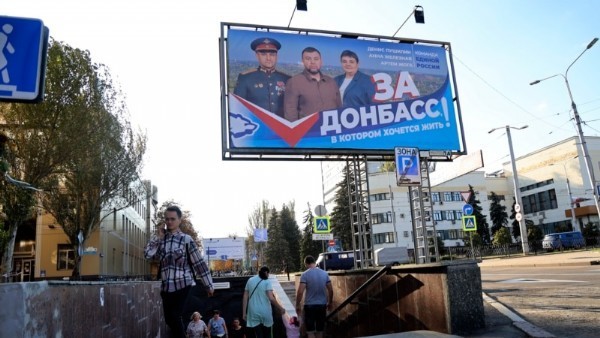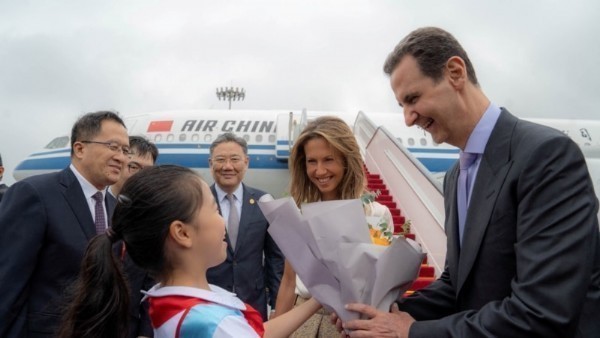Washington — When Kamala Harris and Donald Trump met in a presidential debate on Tuesday, they spoke about a range of foreign policy issues, including China and Russia’s war in Ukraine.
But while the debate attracted large audiences and coverage in the United States and Europe, Beijing and Moscow’s state-run media were relatively quiet on the event.
The minimal coverage is a contrast to the presidential debate between Joe Biden and Trump in June.
Chinese media
After that debate, Beijing-run outlets — like media around the world — were flooded with coverage of Biden’s poor performance.
But Harris-Trump coverage was noticeably slimmer in state-run outlets such as Xinhua, the Global Times and the People’s Daily newspaper, China media analysts say.
The shift is a subtle but significant distinction, according to China media analysts, that reflects how the Chinese Communist Party, or CCP, employs its propaganda apparatus.
The relative lack of coverage wasn’t all that surprising to Kenton Thibaut, a senior resident China fellow at the Atlantic Council’s Digital Forensic Research Lab in Washington.
The Chinese government is probably still figuring out how to move forward following Biden’s abrupt withdrawal, said Thibaut. She believes that’s a primary reason for the reduced coverage of this week’s debate.
“This is really reflective of how China handles changes in foreign policy issues,” Thibaut said. “They just stick to very fact-based coverage, basically restating what the candidate said, until they — the propaganda department and such — can figure out basically how to cover it globally and domestically.
”
Another reason for the reduced coverage may have to do with democracy itself, according to China experts.
“The presidential debate is important for U.S. democracy, and democracy is always a sensitive topic for the CCP,” Anne-Marie Brady, a professor and specialist in Chinese politics at the University of Canterbury in New Zealand, told VOA in an email.
Jonathan Hassid, an Iowa State University professor who specializes in Chinese media, agreed.
“Chinese media does not like covering democratic successes,” Hassid told VOA. “Democratic failures are highlighted, but the successes are not.”
That helps explain the difference between the coverage of the two debates. During the first debate, which by many accounts was a fiasco, Biden sounded hoarse and frail, and his repeated fumbles highlighted concerns over the 81-year-old’s capacity to serve another four-year term as president.
In coverage of that debate, Chinese state media relied on narratives about how democracy doesn’t work well, Hassid said.
For instance, Hu Xijin, a Chinese media commentator and former state media editor, wrote, “Objectively speaking, the low-quality performance of these two old men was a negative advertisement for Western democracy.”
By contrast, Hassid said, this week’s debate may have been perceived as a better display of democracy.
Still, China also didn’t even feature that largely in the latest debate.
While Harris didn’t go into much detail, she said that “a policy about China should be in making sure the United States of America wins the competition for the 21st century.” Trump, meanwhile, has previously proposed tariffs up to 100% on Chinese products.
When asked about Harris and Trump’s views about tariffs on imports from China, Chinese Foreign Ministry spokesperson Mao Ning on Wednesday said she had no comment.
“The presidential elections are the United States’ own affairs,” she said. “That said, we are opposed to making China an issue in U.S. elections.
”
A spokesperson for China’s Washington embassy replied to VOA’s request for comment with a similar statement: “On the issue of the U.S. election, China’s position is consistent and clear. China has no intention and will not interfere in it. At the same time, we hope that the U.S. side will not make accusations against China in the election.”
Russian media
Russia — another propaganda powerhouse — also didn’t offer much coverage of the debate. “But that doesn’t mean that they don’t drop in plenty of spin,” according to Darren Linvill, co-director of Clemson University’s Media Forensics Hub.
Based on his analysis of Russian state media coverage of the debate, Linvill said outlets such as RT and Sputnik were focused on downplaying Harris and playing up Trump.
There were some outliers, such as a Sputnik article in which a psychiatrist claimed Harris was trying to “hide her imposter syndrome” during the debate. But most of the coverage was subtler, Linvill said.
Articles tended to be anodyne and not necessarily critical of either side, Linvill said, but they still reveal Moscow’s well-documented preference for Trump.
U.S. officials are again warning about Russian efforts to influence this year’s election. Last week, the Justice Department accused two Russians who work at the Kremlin-backed RT of money laundering by funneling nearly $10 million to a conservative Tennessee-based media outlet that is a leading platform for pro-Trump voices.
While it’s important to monitor disinformation in the lead-up to and during an election, according to Thibaut, the period immediately after is perhaps even more important, especially if the election is close.
“This is a prime time for threat actors to take advantage of information, the polarizing narratives, the charged-up atmosphere to really sow social division,” Thibaut said.
“We have to really remain vigilant after the election as well.
”.
- Nigeria flags flood risk in 11 states as Cameroon relea[..]17 Dakika önce 0 İzlenme
- Teenage mothers in Tanzania struggle with stigmatizatio[..]17 Dakika önce 0 İzlenme
- In Indonesia, Uganda and Ecuador, environmental activis[..]17 Dakika önce 0 İzlenme
- Tensions deepen, with Addis Ababa falsely accusing Cair[..]17 Dakika önce 0 İzlenme
- Africa needs its own medical research for its health is[..]17 Dakika önce 0 İzlenme
- US lawmakers welcome Russian activist freed in August p[..]47 Dakika önce 0 İzlenme
- Germany's expanded border controls reflect concerns ove[..]47 Dakika önce 0 İzlenme
- Britain looks to Italy for help amid surge in Channel m[..]47 Dakika önce 0 İzlenme
- EU court confirms Qualcomm's antitrust fine, with minor[..]47 Dakika önce 0 İzlenme
- Deadly Portugal wildfires force new evacuations47 Dakika önce 0 İzlenme
- 'End of an era': UK to shut last coal-fired power plant[..]47 Dakika önce 0 İzlenme
- France's new PM warns of 'very serious' financial situa[..]47 Dakika önce 0 İzlenme
- Market in Ukraine's Kharkiv region helps out-of-work fa[..]47 Dakika önce 0 İzlenme
- Frenchwoman in mass rape case calls husband, other susp[..]47 Dakika önce 0 İzlenme
- Youth group exposes Turkey's Israel trade47 Dakika önce 0 İzlenme
- Pressure grows on Britain ahead of Commonwealth summit [..]47 Dakika önce 0 İzlenme
- Pressure grows on Britain ahead of Commonwealth summit [..]47 Dakika önce 0 İzlenme
- US official: China's support for Russia's war effort in[..]47 Dakika önce 0 İzlenme
- Iconic US container firm Tupperware files for bankruptc[..]1 Saat, 17 Dakika önce 0 İzlenme
- US Air Force general: Russia military larger, better th[..]1 Saat, 17 Dakika önce 0 İzlenme
- US decision on Nippon bid for US Steel pushed to after [..]1 Saat, 17 Dakika önce 0 İzlenme

